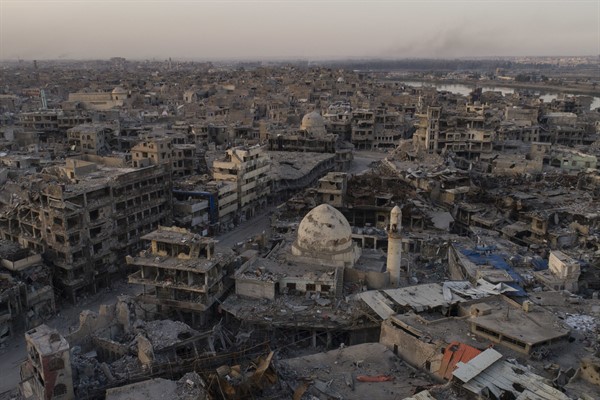MOSUL, Iraq—On both sides of the Atlantic, the war in Ukraine and its direct impacts on regional security and the international order continue to be the focus of policymaking attention. By contrast, because Iraq is physically distant to the conflict, the country continues to remain embroiled in its own affairs.
Six months after parliamentary elections held last October, Iraq’s political class remains stuck in a protracted negotiation over government formation that is slowly morphing into a governance crisis, with all the ingredients of state failure. Meanwhile, Iran and the United States continue to jostle for influence in the country, confronting each other by proxy and sometimes directly, as I wrote about last week. The Iraqi economy is in shambles, with the dinar having been devalued by 22 percent in December 2020 in response to a severe liquidity crisis brought on by low oil prices, and millions of impoverished Iraqis barely able to afford food and energy. And to make matters worse, Iraq—a leading oil producer—is suffering from protracted fuel shortages in the major provinces of Nasiriya and Ninewa. On a trip to Mosul this week, I saw lines of people waiting to buy gas stretching for blocks at the city’s fuel stations; the Kurdish region is suffering from an even more severe shortage.
But even amid these severe difficulties at home, every conversation I have had with Iraqis at some point turns to the war in Ukraine. Iraqis intuitively understand war’s long timescale in a way that eludes those Western observers who started paying attention to Ukraine only last month, even as the country has been at war since 2014. Iraqis have similarly experienced several cycles of punishing conflict since 1980, when Iraqi forces invaded neighboring Iran, setting off an eight-year war that scarred both countries. That was quickly followed by the First Gulf War in 1990 and then the U.S. invasion two decades later in 2003. As a result, the young men who fought against ISIS between 2014 and 2018 are usually the third generation in their families whose formative experience in life was war.

